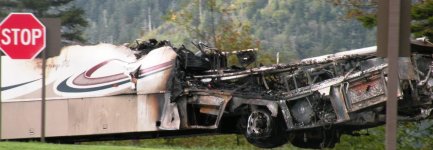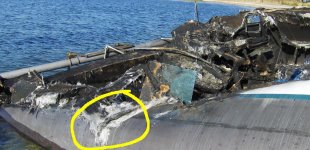I am like Jim Gratz.. I took Mac McCoy's siminar at LOW. I have a extinguisher in the bedroom, at the exit door, in the living room, in the TV and in the basement of the trailer. A friend that I respect also coached me about always be aware that a fire could happen, so be prepared every day. He keeps a Fire proof safe by the door, with a set of keys, a credit card, some cash, Passport, and a set of clothes in the closet by the door.
If you attend Mac's presentation he will tell you that if your rv is on fire or if your around any vehicle that is made of fibreglass run, don't walk up wind of any smoke. The reason is that the fibre in fibreglass is like little fish hooks and can be carried away in the smoke down wind. If you enhale the smoke the fibreglass particles can become lodged in your lungs and you can not get it out. You will develop infasemia.
Be careful. This is why I travel with my propane turned off. What is wrong with a little extra safety. Can't hurt. ... but what if ?? ...
BC



